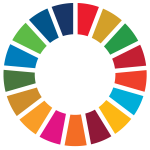Esta web utiliza cookies para que podamos ofrecerte la mejor experiencia de usuario posible. La información de las cookies se almacena en tu navegador y realiza funciones tales como reconocerte cuando vuelves a nuestra web o ayudar a nuestro equipo a comprender qué secciones de la web encuentras más interesantes y útiles.
Applied Social Entrepreneurship Course: A Hands-on approach towards society’s most wicked problems
Description
Institution
Nova School of Business & Economics

Organizations/areas of the university involved
Faculty Affairs
Country
Portugal
Applied Social Entrepreneurship Course is a master’s level course that provides university students the opportunity to be social entrepreneurs for one semester, where they are challenged to identify and propose solution to SDG-related problems.
Applied Social Entrepreneurship (ASE) is an elective master’s level course that provides university students the opportunity to be social entrepreneurs for one semester.
The teaching methodologies adopted are intended to stimulate the students’ ability to go from theory to practice, through the apprehension of concepts, tools and methodologies which are explained during the lectures. These contribute to the process of individual and group learning and the development of critical analysis and integrated thinking, necessary to tackled wicked problems.
The course design aims to give students an in-depth experience of the complex and nonlinear process of social entrepreneurship. In groups, students are expected to: 1) identify a social problem that they are familiar with, or would like to see solved, 2) study in depth the problem tree to define its causes and effects and 3) based on this diagnosis, design and test an innovative solution using the tools provided in the course lectures. The solutions must have an underlying impact model that defines the main inputs, activities, outputs, outcomes and expected impact of the proposed solution.
In this course, students go through a complex journey of deconstructing a social or environmental problem in order to discover, recognize and understand its underlying causes and effects, in a complex scheme that reveals the systemic and interconnected dimension of societal challenges. Students are incentivized to reach out to other actors in the community that are being affected by this problem, or organizations that are already trying to tackle it, as to have a better vision on how the problem could be tackled and their solution can actually add value . This multi-actor environment reinforces the idea that societal problems should be solved in partnership with different stakeholders.
The work group project culminates in a final pitch day, where students present their proposed solution to a group of investors. After the course, students can choose to carry out their projects outside the School or even integrated in our community of entrepreneurs – a program that provides guidance and support to student developing entrepreneurial projects.
Results and impact measured or expected
ASE was created in the academic year of 2010/2011, reached so far +1,000 students. Students are expected to finish the course with a much clearer understanding about the complexity and interconnectedness inherent to societal problems, the synergies and trade-offs that need to be made, as well as the need to have collaborative processes transversal to all sectors of the economy to efficiently tackle these problems or mitigate their impacts on society.
Students are expected to gain the skills to perform problem solving in complex contexts, which are broadly applicable and relevant for students to navigate difficult scenarios in other disciplines and in their future professional lives.
Examples of ideas developed in class is the Nova Awareness Club, a student club at Nova SBE focused on creating and disseminating knowledge through opinion articles in a variety of topics, from economics, to finance, sustainability, politics or international relations.
Connection with the SDG framework
ASE is a challenging elective aiming to teach students with the principles and values of social entrepreneurship, which they can take for their future professional lives.
The course is framed around the notion of social and environmental issues as wicked societal problems that are often difficult, or even impossible, to solve due to: 1) incomplete or contradictory knowledge, 2) number of people involved, 3) large economic burden and 4) the interconnected nature of these problems with other problems. The use of the SDG framework is implicit, as students tend to focus on social or environmental problems. By doing so, concepts like systems-thinking, complex problems and interconnectedness, either synergies or trade-offs, become apparent and common to the learners, as they are incentivized to gain the specific skills to navigate them.This type of hands-on academic challenge promotes a kind of mindset and develops the skills aligned with the principles of sustainability.
Barriers and follow up
On the practical side it has also been difficult to constantly engage with the community. The teaching team invites an average of 20-25 external partners to participate in our course, namely 2-3 social entrepreneurs presenting in what we call the “inspirational sessions”; 12-14 mentors, one per group, impact-measuring experts, pitching experts, our most successful alumni (between 2 and 3 projects are presented), and a jury of 3-4 experts in topics relating to the social economy. So the external outreach is time consuming, but very important to the quality of the course and the feedback that we get from students highlights just that (that the openess to society of the course and the envolvement of external and active actors is an important part of the satisfactionthey get from the course).
Transferability of the initiative
ASE course is an example of the kind of hands-on experiences that are essential to develop students’ knowledge and skills for sustainable development. Believing that sustainable development is an interdisciplinary skill that touches on a plethora of subjects and areas of expertise, from engineering to social sciences, architecture to humanities, it could be very relevant to challenge students to tackle societal problems, from a perspective that is adapted to their competences and interests. Thus, ASE could be replicated in other higher education institutions, but specially on all business and economic schools across the world.
Education 4 SDG funciona gracias a WordPress


